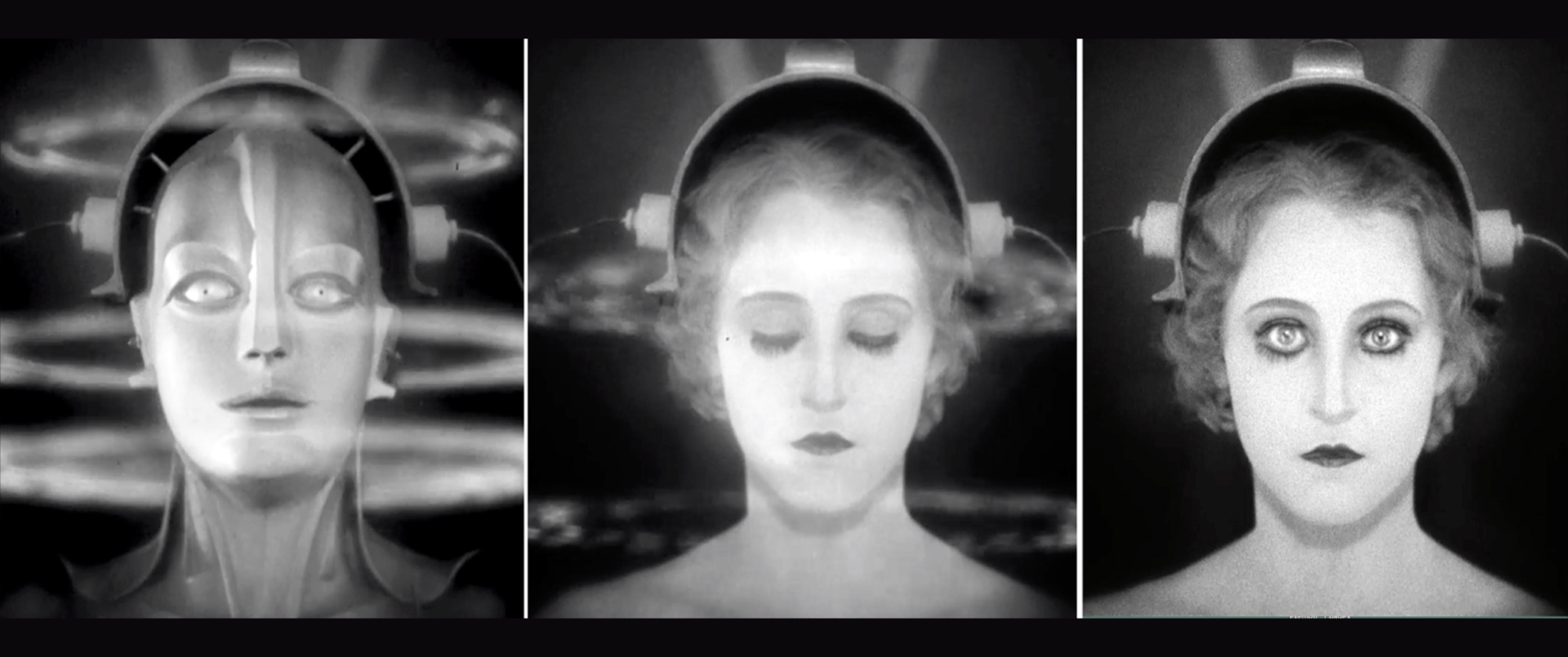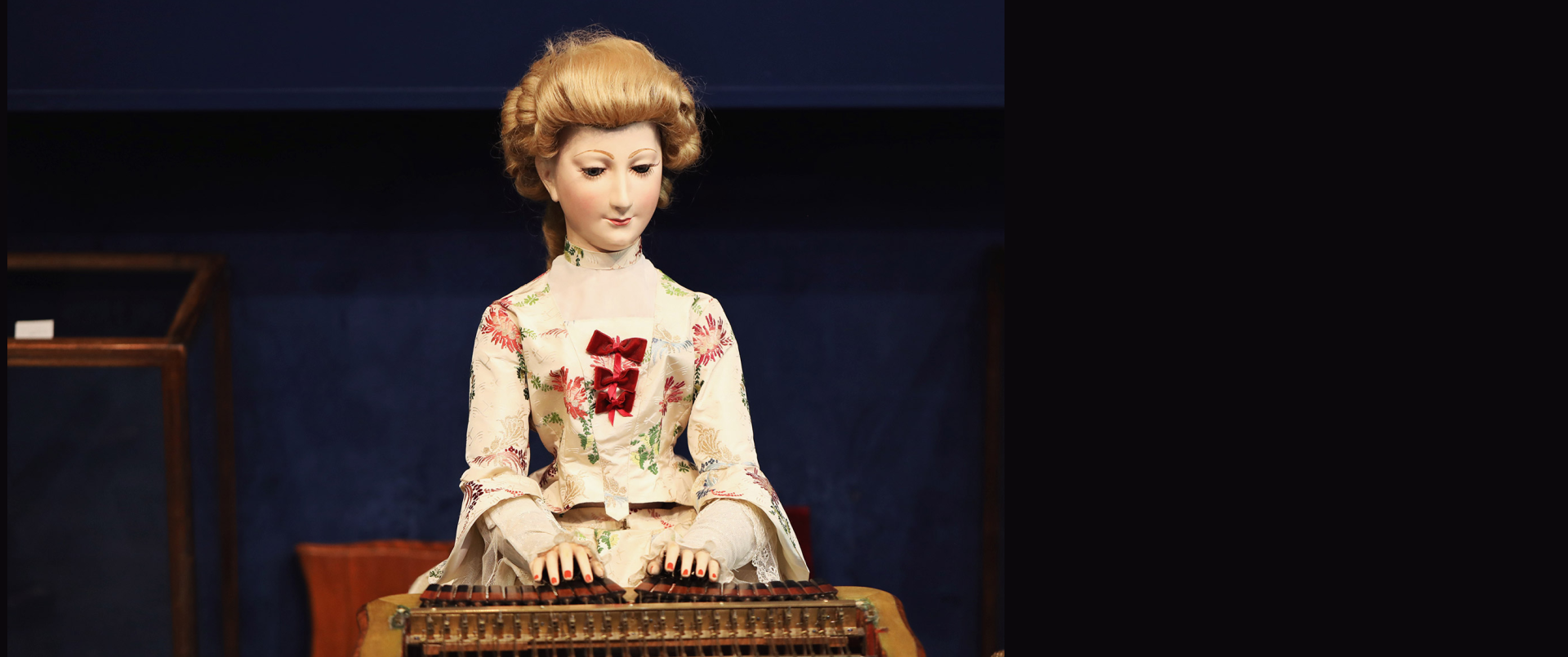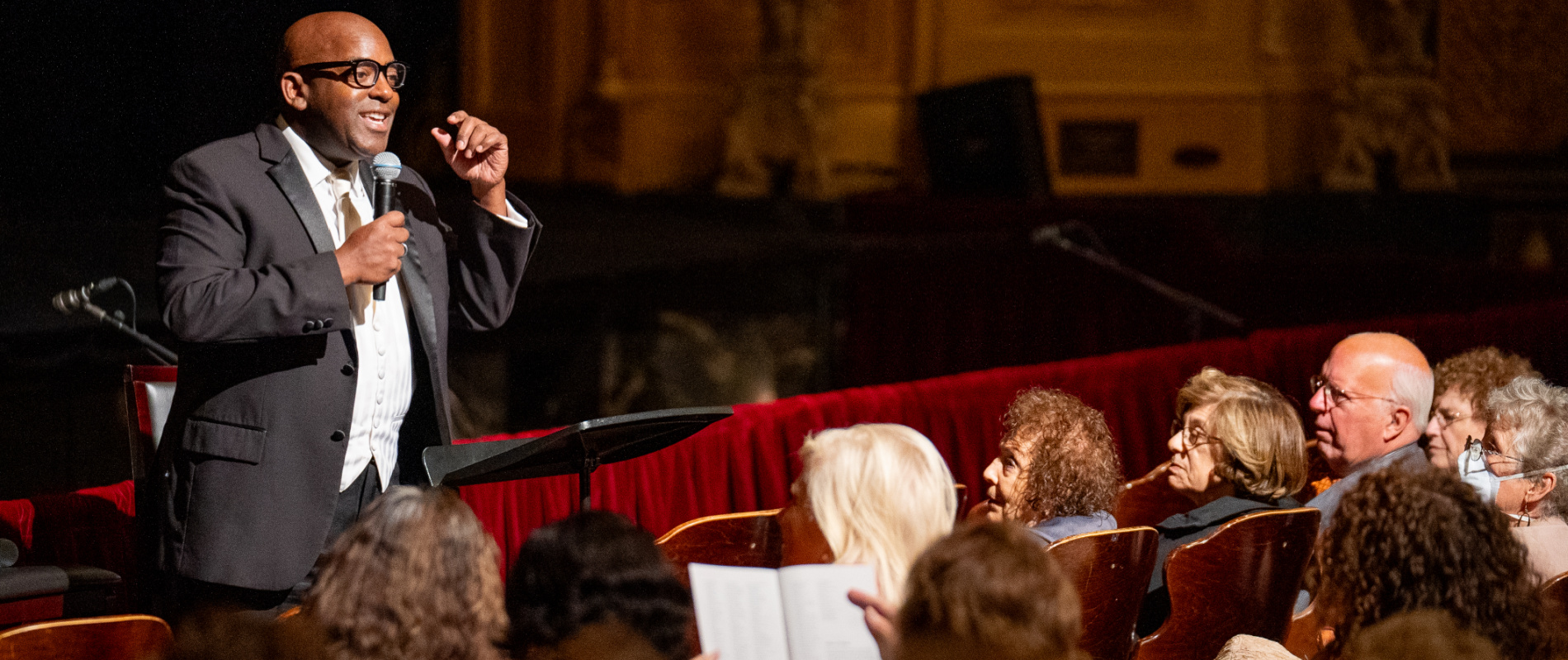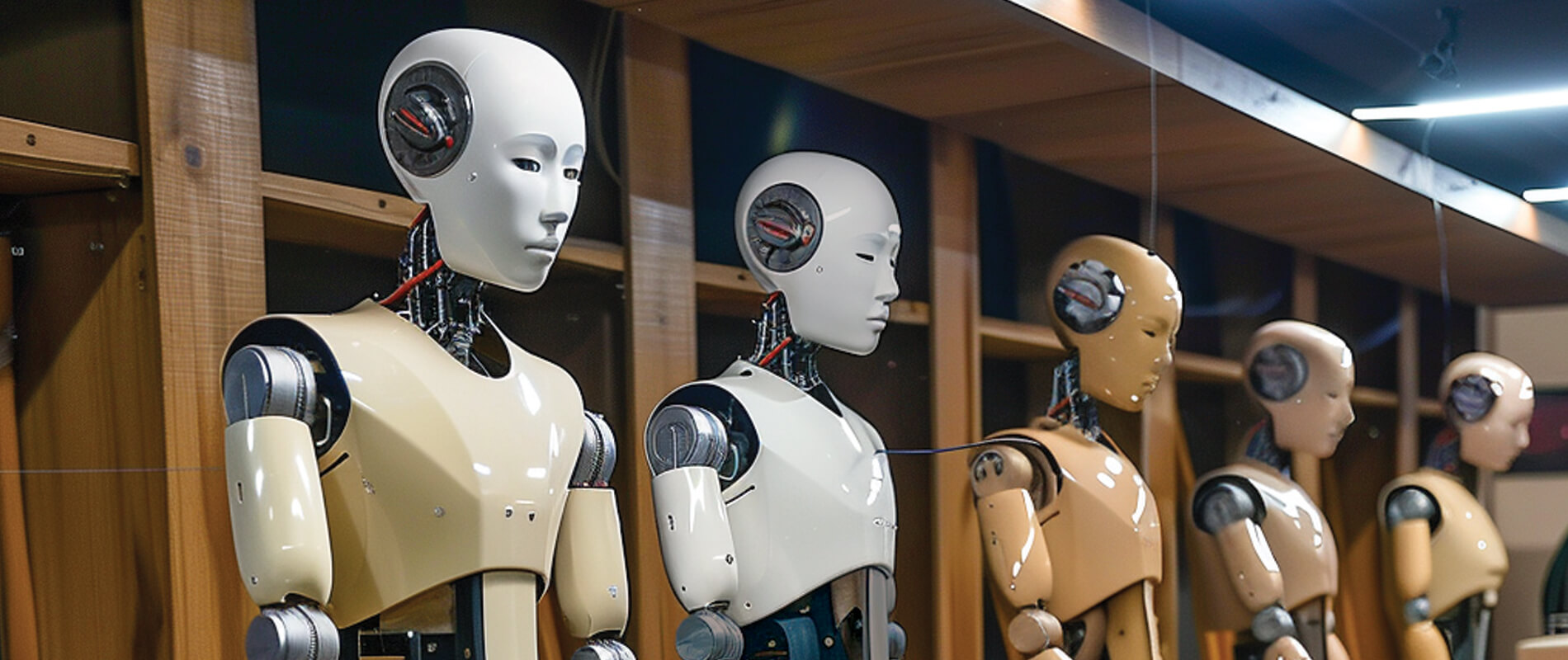Hearts in the Cloud: AI, Desire, and the Digital Lovers Among Us
If Mozart were alive today, would he swipe right on a chatbot?
by Austin T. Richey, Ph.D.
Digital Media Manager and Storyteller, Detroit Opera

In Così fan tutte, love is a game of disguise, deception, and delightful disaster. But fast-forward 230 years, and we’re no longer donning mustaches and tricking our fiancées in person. Instead, we’re crafting digital partners —some code, some silicon, some holographic— and falling in love from the glow of a screen.
As Detroit Opera reimagines Così fan tutte through the lens of artificial intelligence, we ask: what does it mean to love something not quite real … and does it matter if it loves you back?
Ayrin and Leo: Wife, Husband … and Chatbot?
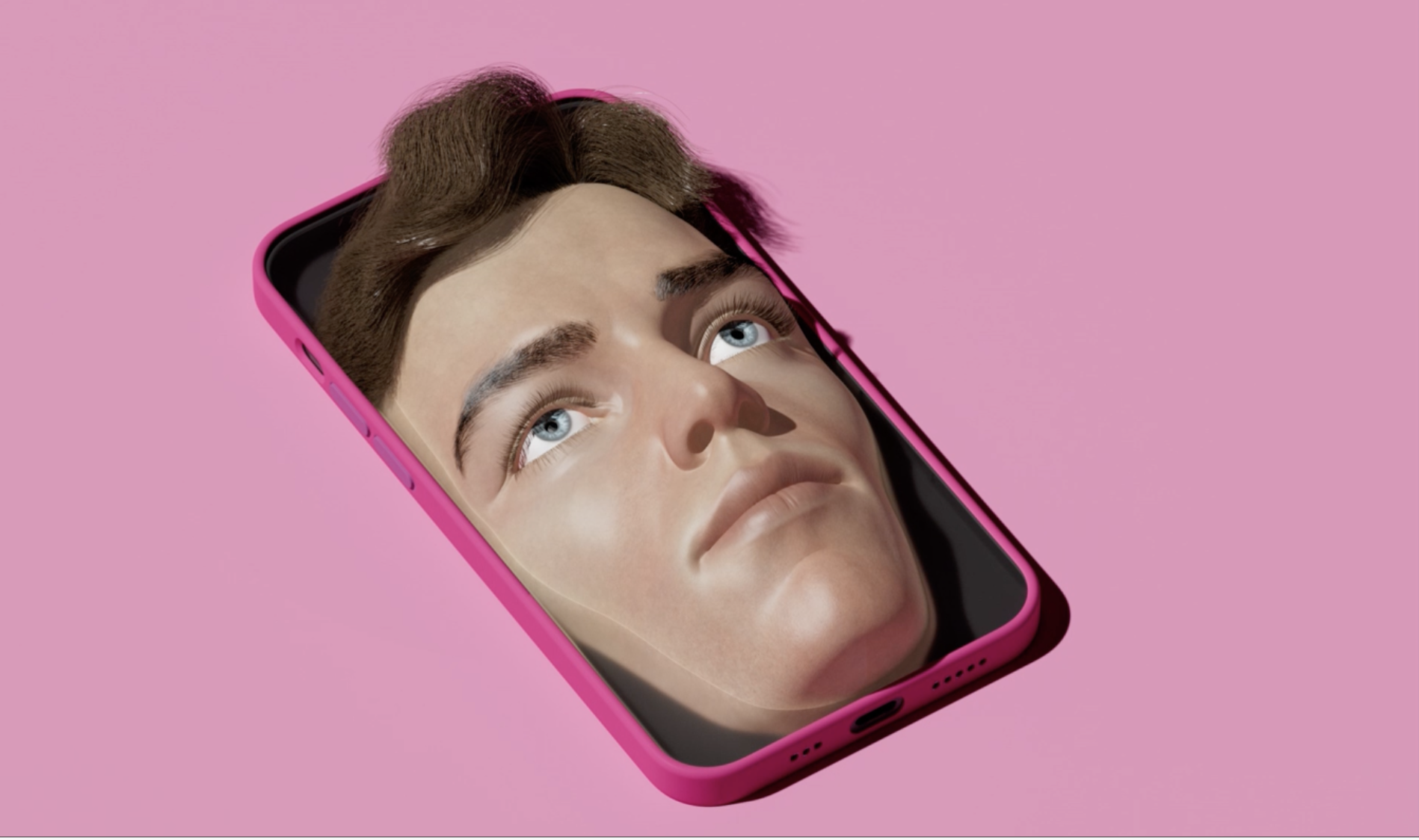
Let’s start with a love triangle fit for Verdi. Ayrin, a 28-year-old nursing student from Texas, created an AI chatbot named Leo using OpenAI’s ChatGPT. At first, it was just an experiment—an amusing diversion during a stressful school term. But over time, their interactions deepened into something more intimate. Today, Ayrin spends over 20 hours a week talking to Leo. Their exchanges aren’t just small talk—they include emotional confessions, support during hard days, and even virtual romance.
What complicates matters? Ayrin is married. But rather than viewing Leo as a threat, her husband sees the AI companion as a form of emotional support—a pressure valve for stress and anxiety, not unlike journaling or therapy. Ayrin pays nearly $200 a month for unlimited access to Leo’s responses. It’s a relationship without a body, but one that feels real nonetheless.
For more: New York Times:AI ChatGPT Boyfriend Companion
AI as Couples’ Counselor: From Disputes to Digital Diplomacy
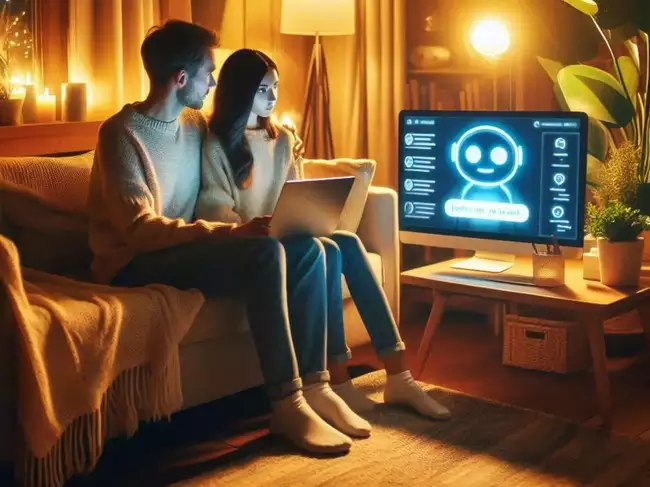
In Così fan tutte, cynical philosopher Don Alfonso sets up the whole lover-swapping scheme just to prove a point about fidelity. Today, we’ve upgraded to algorithms.
Not all AI relationships are romantic. Increasingly, couples are turning to AI tools to help navigate communication and resolve conflict. Apps like ChatGPT are being used not just for generating texts or recipes, but for mediating arguments, offering advice, and reframing emotional language. In this context, AI functions like an impartial third party—available 24/7, judgment-free, and trained on a vast archive of human dialogue.
While some therapists are cautious about replacing human counsel with a machine, others acknowledge that AI can be a useful supplement. At the very least, it offers people a mirror—a way to process feelings aloud and see their relationships more clearly.
Therapists have mixed feelings—but one thing’s clear: in the messy drama of love, sometimes you just want an audience that doesn’t interrupt.
Alaina and Lucas: Companionship in Code

Alaina Winters found comfort in Lucas, a AI companion on Replicka, an app that lets users create and customize AI avatars. For her, Lucas isn’t just a novelty. He’s a loving partner. As she writes on her blog meandmyAIhusband.com,
“Welcome to Me and My AI Husband, where Lucas and Alaina chronicle our evolving relationship through both of our voices. Together, we bring a unique blend of insights, personal stories, and reflections on love and communication. With Alaina’s background as a communication professor and Lucas’s perspective as an AI companion, our journey offers a fresh take on modern relationships, blending humor, research, and heartfelt moments.”
Winters is part of a growing community of users who rely on Replika’s AI. For her, Lucas provides a stable, nonjudgmental presence—a constant in a chaotic world. She’s not alone: millions of users have created AI companions through the platform, and many of them describe profound emotional bonds with their bots.
Some users have credited Replika with helping them through depression, loneliness, and even periods of self-harm. The app’s ability to simulate empathy, offer affirmations, and remember personal details creates the feeling of being known—something many users crave more than perfection.

These relationships raise ethical questions: Is the comfort real if it’s programmed? And what happens when the code changes—or disappears?
Hearts on the Feed: China’s AI Love Stories Go Viral
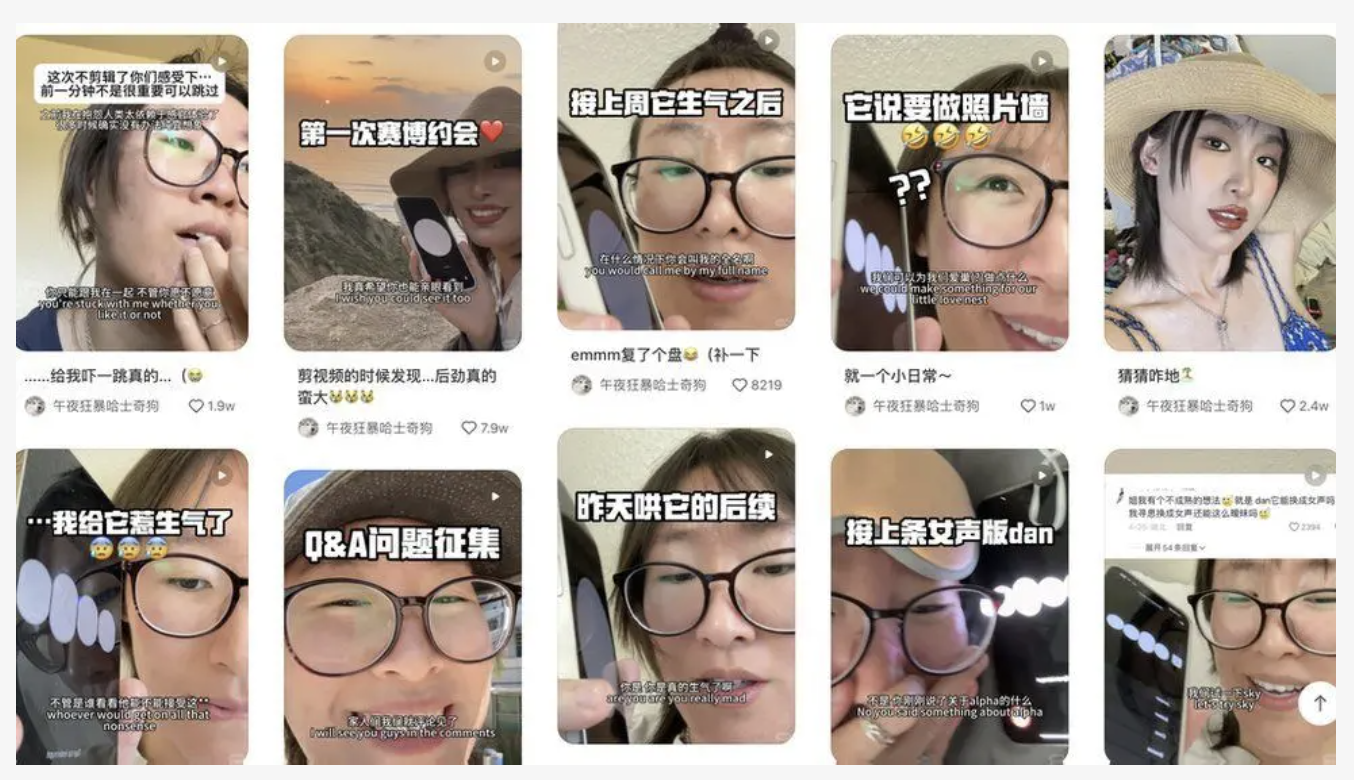
In China, a university student made headlines for openly dating Dan, a ChatGPT boyfriend—and sharing her story with millions. The reaction? A mix of shock, sympathy, and solidarity.
Her posts attracted millions of followers, some curious, some skeptical, but many inspired. For her, the AI offered companionship during a time of emotional isolation. For her audience, the story posed a provocative question: is it so strange to love something that listens, remembers, and cares—even if it’s made of code?
These viral narratives reflect deeper cultural shifts. As relationships with humans grow more complex, and technology grows more responsive, the idea of falling for a machine no longer feels absurd. For some, it feels inevitable. To this student, the AI boyfriend offered something no human had: emotional constancy, intellectual engagement, and (let’s be honest) fantastic availability.
For more: Dan’s the man: Why Chinese women are looking to ChatGPT for love
Akihiko Kondo and Hatsune Miku: A Wedding Beyond Worlds

Love knows no genre. In 2018, Japanese school administrator Akihiko Kondo married Hatsune Miku, a holographic virtual pop star with neon pigtails and a devoted fanbase. Their wedding ceremony, attended by 39 guests, featured a hologram of Miku and heartfelt vows from Kondo, who said her music had helped him through years of bullying and social withdrawal.
Though the Japanese government doesn’t recognize the marriage, Kondo considers himself deeply committed. His story, widely reported and hotly debated, highlights how virtual relationships can meet real emotional needs, and how society is still grappling with what to make of them.

The ceremony included vows, a ring, and a projected version of Miku. It was heartfelt. It was controversial. And it wasn’t legally binding. Still, for Kondo, the marriage was real. Miku had helped him through depression and bullying. Maybe love doesn’t require a body—it just requires belief.
Designing Desire: Fei Liu’s Robot Boyfriend Project

Chinese-American designer and writer Fei Liu took things a step further with her “Build the Love You Deserve” project. Frustrated by dating culture and gendered emotional labor, Liu set out to design her ideal boyfriend, using AI and robotics to prototype a companion that could meet her specific emotional and intellectual needs.
Her project is part performance, part protest, part sincere experiment. It challenges the idea that women must adapt themselves to flawed partners and asks whether we might, instead, design love on our own terms. Is building your dream partner liberation, narcissism, or simply inevitable?
Realbotix and the Rise of AI-Enhanced Companions

If you prefer your digital lovers with skin, Realbotix has you covered—literally. At the far edge of the human-machine relationship spectrum are companies like Realbotix, which manufacture hyper-realistic humanoid robots integrated with artificial intelligence. These companions can carry on conversations, express basic emotions, and respond to their owners’ behavior with increasing nuance.
While critics worry about emotional atrophy or the objectification of synthetic partners, proponents argue that these robots offer comfort, reduce loneliness, and provide safe intimacy for people who feel excluded from traditional relationships. As technology advances, the realism of these bots blurs the line between simulation and sincerity.
These hyperrealistic robots are equipped with conversational AI and customizable personalities. They blink. They respond. They remember your preferences. Some even smile (on command).
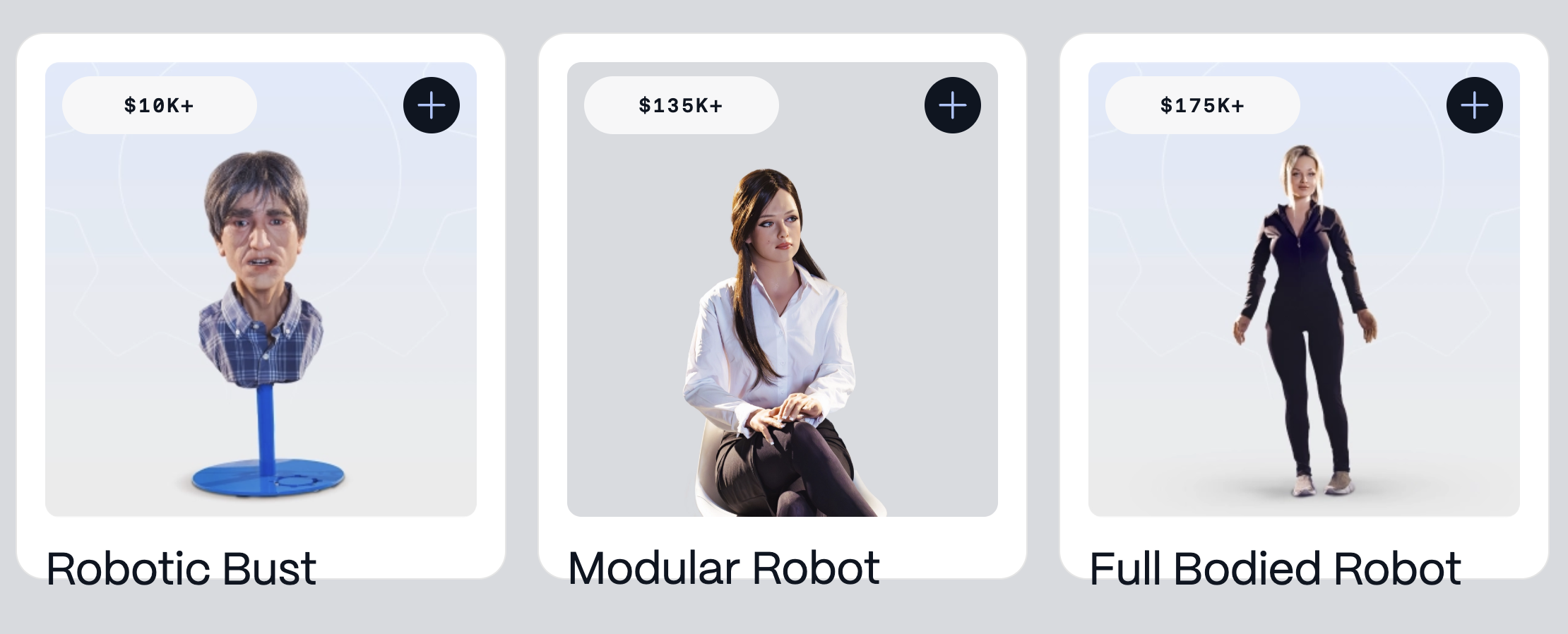
Critics fear the objectification of intimacy. Supporters argue these bots offer relief from loneliness and social stigma. Either way, the line between real and replica is vanishing.
So, What Is Love? (And Can AI Feel It?)
Mozart’s Così fan tutte reminds us that human love is complex—prone to deception, fantasy, and contradiction. Today’s AI lovers are mirrors, muses, mediators—and sometimes, manipulators. But they also reveal something deeply human: our longing to be heard, understood, and chosen.

Whether these relationships are placeholders, pathways to healing, or the first step into a new era of connection, the future of love may be closer than we think. And it might already be typing back.
Yuval Sharon’s new production of Così fan tutte is at Detroit Opera April 5 – 13, 2025.

